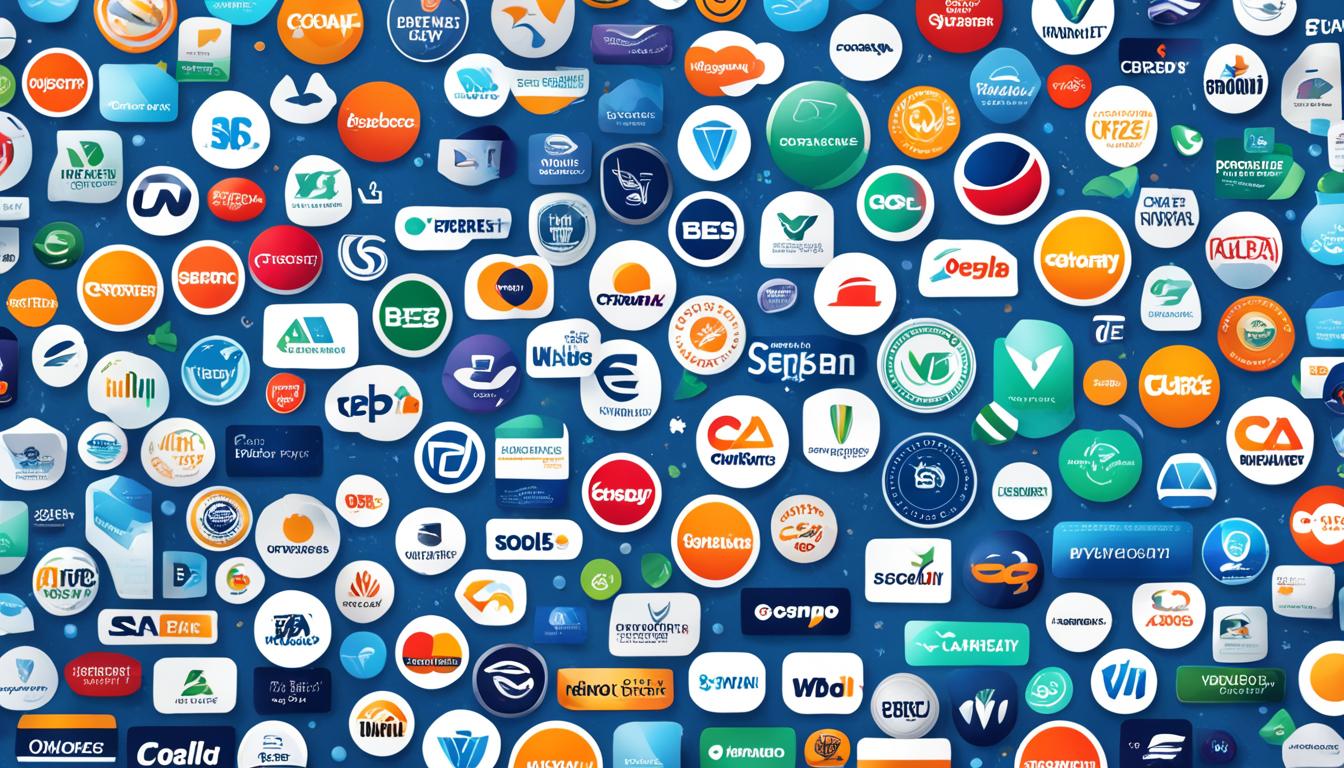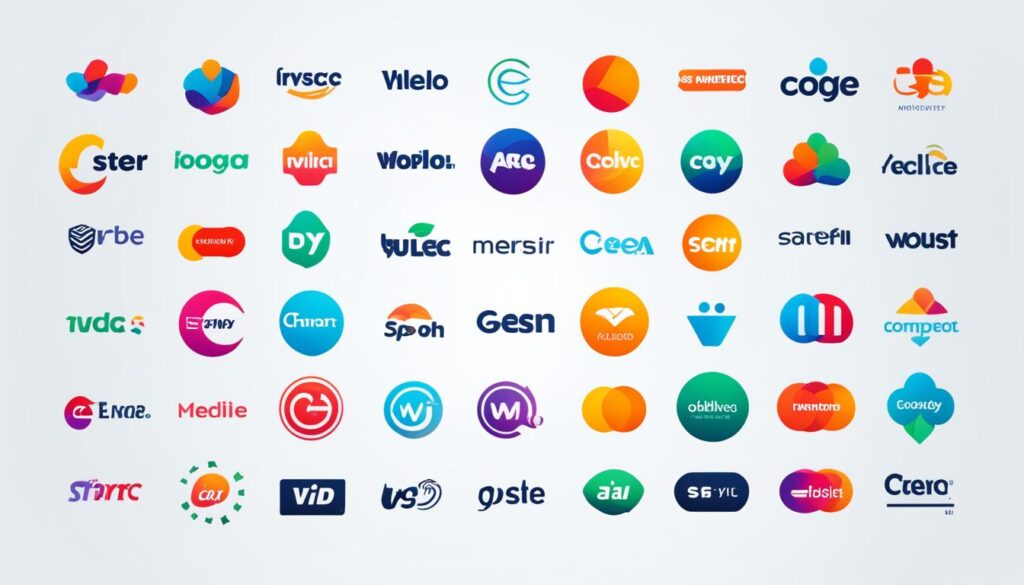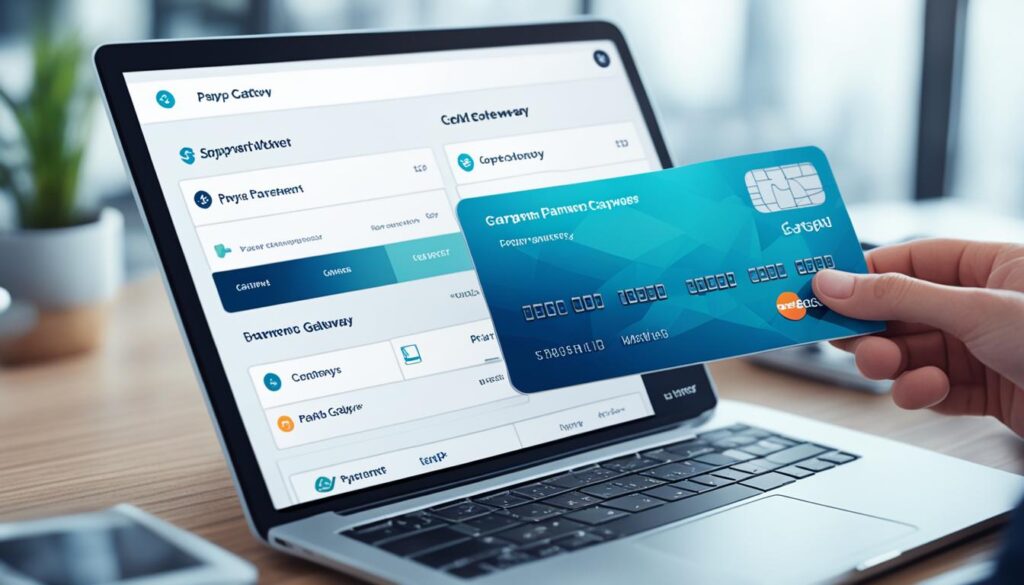Physical Address
304 North Cardinal St.
Dorchester Center, MA 02124
Physical Address
304 North Cardinal St.
Dorchester Center, MA 02124

Top Payment Gateways for E-commerce Sites that offer secure and efficient payment processing solutions for online businesses, ensuring smooth transactions.
In 2023, the money online payments services can make from fees is set to jump. Insider Intelligence predicts it will go from $82 billion in 2018 to $138 billion. This highlights the key role payment gateways have in online shopping. They act like the checkout counter for sellers online and on mobile, handling the payment process. As online shopping keeps growing, more payment gateways are competing. This makes it hard for sellers to choose which one to use.
Payment gateways kick off the online payment journey. They are essential for e-commerce businesses to smoothly take payments online. These tools provide services like accepting payments, tracking data, and managing fraud. They are a must-have for online shops to run well. Since there are many gateways out there, sellers need to compare. They should look at what each one offers, how much it costs, and if it fits their business and customer needs.
### Key Takeaways
In e-commerce, payment gateways are key to safe online payments. They link the seller, payment processor, and the banks. This ensures smooth money transfers. Knowing how gateways work helps online stores handle payments better.
A payment gateway lets customers pay with cards or digital wallets online. It links their method to the seller’s bank. Just like a store’s card reader, it keeps payment info safe and makes sure transactions are complete.
Payment gateways are vital for online sales. They connect the store, the payment processor, and the banks. This connection allows payments to be verified and money to change hands. They fill in when direct connections aren’t possible, making sure payments are sent securely.
The top payment gateways deliver lots of perks for online stores and their customers, like:
By using a good payment gateway, online shops can promise a smooth and secure payment system. This makes shoppers happy and builds trust, leading to more sales and loyal customers.
https://www.youtube.com/watch?v=K3KwXRuQCiI
Choosing the right payment gateway for your online business is crucial. Some top choices combine great features, security, and brand recognition. This makes them ideal for digital sellers.
PayPal is a favorite for its safe transactions and global reach. It lets you accept payments from over 200 countries in different currencies. Also, its fees, 2.99% plus $0.49 per sale, are quite competitive.
Stripe is known for its many features that help e-commerce sites run smoothly. It has tools for automated payments and the option to receive cryptocurrencies. With fees at 2.7% plus $0.05, it’s a good deal for online sellers.
Amazon Pay lets shoppers use their Amazon details to buy from your site. This adds recognizable trust marks to your checkout, lowering cart abandonment. It’s a seamless option for integrating with e-commerce sites.

Choosing a reliable payment gateway is key for online shops. There are several top payment gateways known for their secure features. Each has unique pros for e-commerce businesses.
Worldpay is a veteran in online payments. It handles both online and in-person payments. It was ranked No. 1 in the US in 2018 for its payment processing, showing it’s a top choice.
Ingenico started in-store but now handles online and mobile transactions too. Its history and broad service range make it a great Top Payment Gateway pick for e-commerce stores.
Amazon’s online payment service is strong due to its big name and secure system. Not just for Amazon, it’s used by many online stores. This makes it a favorite for many e-commerce shoppers.
Braintree, owned by PayPal, is perfect for mobile payments. Major digital brands trust its service. It’s a top pick for easy and safe online payments.
Choosing the right payment gateway for your online store is critical. You should consider various elements like Pricing and Fees, Integrations and Customizations, Security and Compliance, and Supported Payment Methods.
Gateway charges differ a lot. Subscriptions can cost between $25 to $50 monthly. On top of that, transaction fees are usually 2.9% plus 30 cents for each sale. It’s key to examine these costs closely to avoid any surprise expenses.
Ensure the gateway works well with your website and other tools like billing or bookkeeping software. It should allow you to make changes to fit your specific business needs. This includes things like processing payments from around the world and offering trials.
Keeping payment data safe is vital. Choose a gateway that meets PCI DSS compliance standards and has strong fraud prevention and detection tools, including 3D Secure for extra verification. This helps keep your business and clients secure.
Think about what payment methods your clients like best, from cards to digital wallets. Make sure the gateway you pick can handle a variety of payment methods. This is especially important in places where credit cards aren’t used as much.
By looking closely at these points, you can choose a gateway that meets your business’s requirements. It will offer your customers a smooth shopping experience and help your online business grow.
The way we pay is changing, and e-commerce needs to keep up. As more people shop online, they want secure and easy payment methods. Thanks to the rise of e-commerce and mobile payments, payment gateways are changing.
They’re working hard to meet the needs of both sellers and buyers. This includes making sure the process is smooth and safe.
Mobile payments are on the rise. Companies like Braintree and Square are meeting the needs of mobile-first businesses. Customers love the ease and safety of paying with their phones.
With apps like Apple Pay and Google Pay, paying has never been easier. Expect to see more businesses offering mobile pay options. It makes checking out simple and fast.
Some payment gateways are now adding support for digital currencies. This means shops can take not just cards but also things like Bitcoin.
As more people use cryptocurrencies, this trend will only get stronger. It opens up new sales opportunities for businesses. They can now cater to a broader customer base.

In 2023, the leading payment gateways for e-commerce are PayPal, Stripe, Amazon Pay, Worldpay, Ingenico, and Braintree. These Top Payment Gateways are well-known for their security and easy use. They are first choices for businesses wanting Online Payment Processing without hassle.
Merchants everywhere trust these E-commerce Payment Providers. They’re known for their powerful features, fast payments, and ability to fight online fraud. They work smoothly with top e-commerce systems. As a result, they are top picks for any business that aims to offer safe and easy online payments to customers.
| Payment Gateway | Processing Fees | Monthly Fees |
|---|---|---|
| PayPal | 2.99% + 49¢ | $0.00 for Payflow Link, $25 for Payflow Pro |
| Stripe | 2.7% + 5¢ | $0.00 |
| Amazon Pay | 2.9% + $0.29 | $0.00 |
| Adyen | 0.6% + $0.13 plus interchange (Visa/Mastercard), 3.3% + $0.23 (AmEx) | $0.00 |
| Authorize.net | 2.9% + $0.30 (All-in-One option) | $25.00 |
Year after year, the top Payment Gateways find new ways to help e-commerce stores grow. They keep introducing better Online Payment Processing tools. These efforts help businesses prosper in the fast-changing online market.
Choosing the best payment gateway for your online store is key. You should look into what your business needs are. Think about costs, the need for different online tools, and what payment methods your store should take. Comparing different gateways helps find the right fit. Your goal is to make buying easy and safe for your customers.
First, figure out what your store needs. Look at how much you’ll pay in fees and if there are subscription costs. Think about how well the gateway needs to work with other systems you use. It should be safe and follow rules like PCI DSS.
Also, see what payment methods shoppers want to use. Most gateways work with cards, digital wallets, and sometimes even cryptocurrency. Choose what your customers like to make buying smooth.
With your needs clear, compare what each payment gateway offers. Look into how fast they process payments and how they fight fraud. Check if they deal with international money and support subscriptions.
See how easy it is to link to your site and if you can make the checkout look like your brand. Make sure they promise little downtime and great support. This ensures your store runs smoothly.

Compare your business needs to what each payment gateway can do. This way, you’ll pick one that fits now and can handle future changes as your online store grows.
When you link a payment gateway to your online store, you have to follow certain rules. This is to make sure your customers can pay safely. The steps can change based on the payment gateway and store you use. But, making it both smooth and safe is a must. This is called a PCI-compliant integration.
To connect a payment gateway properly, you need the right tech stuff:
Getting your payment gateway to work with your online shop involves several steps:
Following these steps and making sure you know all the technical parts will help. It lets you make a payment gateway that works well for your store. This way, you offer a safe, reliable, and easy payment process for your customers.

In e-commerce, picking the right payment gateway is key to success. It can either help a business thrive or struggle. Knowing what various gateways offer is crucial. This way, online sellers can choose what works best for their needs.
The leading names include Stripe, PayPal, and Authorize.Net. They provide tools for developers, strong fraud prevention, and work worldwide. With changes like more mobile payments and using digital coins, the way we buy online is always getting better.
The perfect payment gateway makes paying easy, cuts down on fraud, and leaves customers happy. It’s vital for boosting sells and keeping shoppers coming back. By picking the right service and setting it up well, online shops can succeed for a long time.